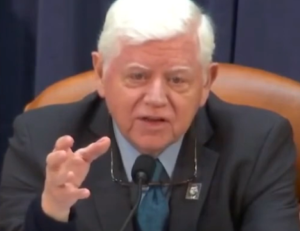During today’s session in the House Ways and Means Committee, Rep. John B. Larson (CT-01) directed questions to IRS Commissioner Danny Werfel concerning the implications of the additional funding secured by Democrats through the Inflation Reduction Act. Larson sought insight into how this funding would bolster customer service and enhance efforts to hold affluent tax evaders accountable. He also raised concerns about the potential repercussions of Republican proposals to slash IRS funding.

Inquiring about the potential impact of budget cuts on IRS operations, Larson expressed alarm over recent House votes proposing reductions in IRS funding, particularly amidst concerns about the federal deficit. Commissioner Werfel highlighted the adverse effects such cuts would have on taxpayers, emphasizing that diminished funding would impede the IRS’s ability to provide essential services. He emphasized that taxpayers would bear the brunt of these funding cuts, facing increased stress and uncertainty in navigating their tax obligations without adequate IRS support.
The Inflation Reduction Act has already yielded tangible benefits for taxpayers, with enhancements in services evident during the current filing season. These include a customer callback option for 95% of callers seeking live assistance, expanded in-person services at Taxpayer Assistance Centers, and the introduction of an online portal for small businesses to electronically file Form 1099 returns. Additionally, the IRS has successfully recouped over $500 million from approximately 1,600 wealthy tax evaders.
However, despite these positive developments, House Republicans have proposed cuts to IRS funding, a move that could severely curtail services available to taxpayers and impede efforts to combat tax evasion among affluent individuals. Such reductions would not only limit the IRS’s capacity to assist taxpayers but also hinder its ability to pursue wealthy tax cheats and fraudsters effectively.
In essence, the Inflation Reduction Act has ushered in critical improvements in IRS services, benefiting taxpayers and enhancing accountability in tax enforcement. Yet, the prospect of funding cuts poses a significant threat to these advancements, underscoring the need for continued support for IRS funding to ensure effective tax administration and uphold taxpayer rights.
